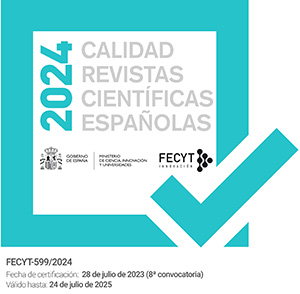Los desequilibrios regionales en España
DOI:
https://doi.org/10.5944/etfvi.3.1990.2479Abstract
Regional inequialities have always existed as can be steen throughout Spanish Economic History. Until well into the Modern Age, inland Spain contained two tliirds of tlie population and yielded most of tlie resources. However, the capitalist system and the free market exarcerbate such inequalities because of their own dynamics, polarizing resources in order to obtain the highest profit. The consequences of this, seen from the geographical point of view, are a migrant population, environnnental changes, urban growth, and the adoption of new forma of spatial organization, among others. Between 1960-1973 the country witnessed a «miraculous» economic growth rate and as such there was a widespread and significant backward movement with important effects in the more industrially developed regions. The economic recovery (1986-1989) maintains such inequalities although the development axes spread in a «4» form which embraces the Valle del Ebro (Ebro Valley), the mediterranean arch from Gerona (Nort Cataluña) to Málaga (South-East Andalucía) and both archipielagos and Madrid, which still is the well established reference point in present-day Spain and its autonomous regions.Downloads
Download data is not yet available.
Downloads
Published
1990-01-01
How to Cite
Franco Aliaga, T. (1990). Los desequilibrios regionales en España. Espacio, Tiempo y Forma. Serie VI. Geografía, (3). https://doi.org/10.5944/etfvi.3.1990.2479
Issue
Section
Investigación
License
Authors who publish in this journal agree to the following terms:
- Authors retain copyright and grant the journal right of the first publication with the work simultaneously licensed under a license Creative Commons Reconocimiento-NoComercial 4.0 Internacional that allows others to share the work with an acknowledgement of the work's authorship and initial publication in this journal.

- Authors are able to enter into separate, additional contractual arrangements for the non-exclusive distribution of the journal's published version of the work (e.g., post it to an institutional repository or publish it in a book), with an acknowledgement of its initial publication in this journal.
- Authors are permitted and encouraged to post their work online (e.g., in institutional repositories or on their website) prior to and during the submission process, as it can lead to productive exchanges, as well as to earlier and greater citation of the published work (See The Effect of Open Access).







